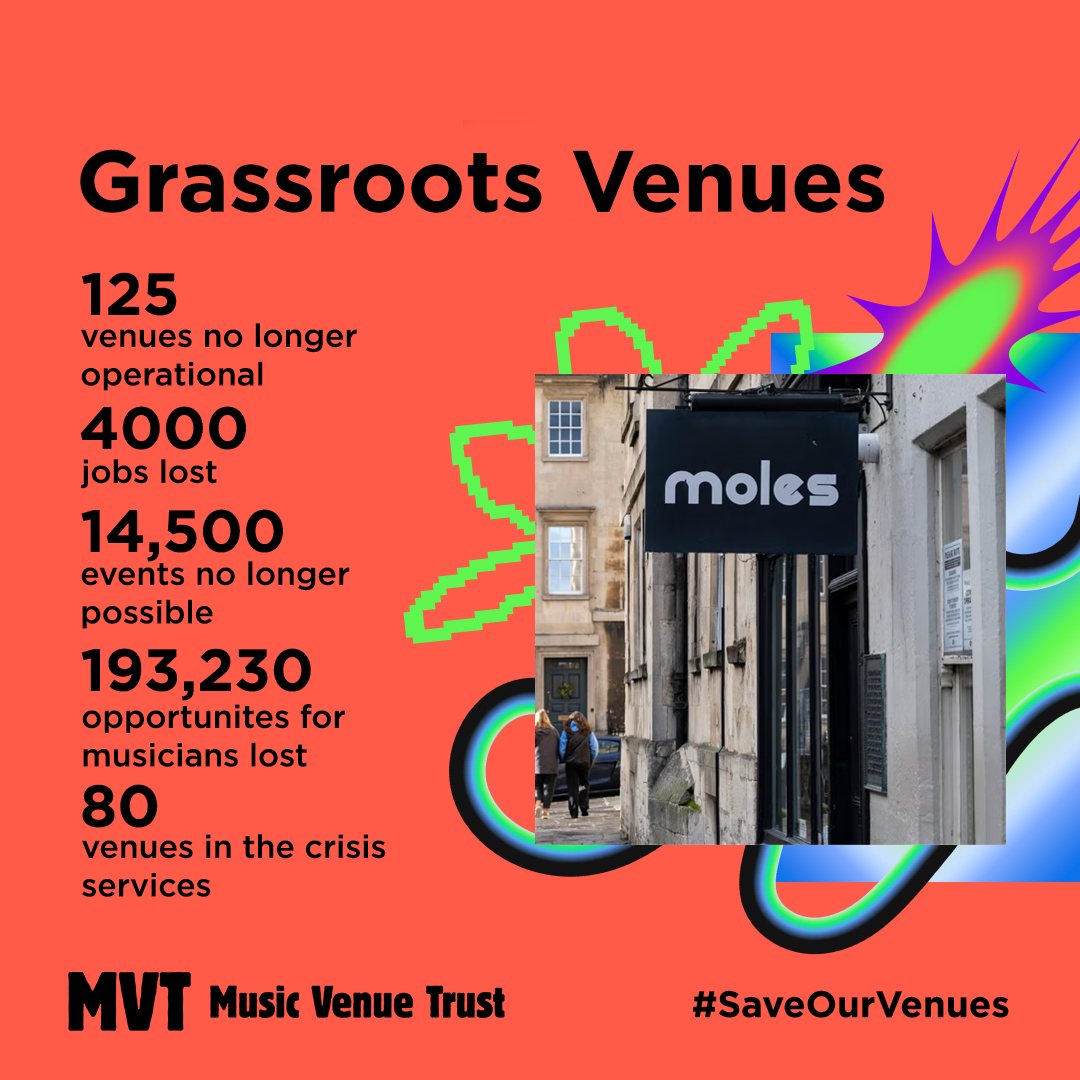In the heart of Britain’s vibrant music scene, a silent crisis is unfolding. Over 125 grassroots music venues, once the cradle of Britain’s musical talent, have been forced to shut down in the past year. These closures are not just a loss of entertainment spaces but a fading echo of cultural heritage and a blow to the future of music in the UK.
If you want an even more disparaging sign of the times, take a piece recently published by the Guardian which warned that UK festivals are being shunned by big-name artists, which is making it all but impossible for festival organisers in the UK and Ireland to pull in headline acts. Once an epicentre for the arts; a cultural breeding ground which spawned The Beatles, David Bowie, Oasis, and thousands of the world’s most revered names in music is now little more than a blot on the landscape of the global music industry.
But the fans can’t entirely be blamed. The situation is far too dire for shame towards the people frequenting far fewer gigs to reverse. The expected sharp rise in absolute poverty rates in 2023/24 makes it impossible to put the onus on music fans. The expectation that people will start heading down to their local venues and start propping up bars that charge them the minimum wage for two drinks is naïve, at best. As long as the economy suffers, so will independent artists and venues. As long as we let late-stage capitalist shills create policies to drive us further into destitution, our cultural sector will continue to crumble, and aspiring artists will never get the opportunity to come close to reaching their aspirations.
Moles in Bath: A Symbol of the Struggle
Moles, a legendary venue in Bath, has become the latest casualty of this crisis. For 45 years, it served as a launchpad for stars like Ed Sheeran, Oasis, and Blur. Tom Maddicott, co-owner of Moles, highlights the multifaceted nature of the problem: soaring costs, skyrocketing utilities, and a general decline in public spending power due to the cost-of-living crisis. The closure of Moles is not just a business loss; it’s a heartbreak for the community and a stark reminder of the precarious state of grassroots venues. In September, Music Venue Trust predicted that the UK will lose 10% of its venues by the end of 2023. The closure of 120 music venues so far is evidence we are already on the way to that figure, and it is so much more than dust on bricks and mortar.
The Ripple Effect on Emerging Talent
Grassroots venues are more than just entertainment spots; they are the research and development departments of the music industry. They provide a platform for artists to hone their skills, experiment, and connect with audiences. The closure of these venues means a significant blow to the nurturing of new talent. Curt Smith of Tears for Fears, who started their journey in such a venue, emphasises the irreplaceable experience these venues offer both artists and audiences. Everyone in the music industry knows that touring is one of the best ways for independent artists to increase their fanbases if that opportunity is lost for this generation of musicians, you don’t need a wild imagination to envisage where we will be ten years down the line from today.
A Call for Collective Action
The Music Venue Trust (MVT) is spearheading efforts to save our cultural keystones. Amongst other noteworthy initiatives, they propose a model where a small portion of ticket sales from larger venues and events is funnelled back into supporting grassroots venues. This model is inspired by France’s approach, where 3.5% of ticket revenue from major events is allocated to support smaller venues and emerging artists. Such initiatives are crucial for the survival and revival of grassroots venues, but they can only go so far if they are alone in their fight for our music venues.
The Urgent Need for Support
Currently, 84 grassroots music venues are teetering on the brink of closure. These venues rely heavily on bar sales and club nights to subsidise the cost of hosting new music acts. Without immediate and effective support, the UK risks losing more of these vital cultural hubs, further eroding its rich musical heritage. Rather than compelling members of the public to live frivolously to be a patron of the arts, immense pressure needs to be applied to the government, especially the Secretary of State for Culture, Media, and Sport, Lucy Claire Frazer.
Conclusion: A Call to Preserve Our Music Venues
The closure of grassroots music venues is a clarion call to all stakeholders in the music industry, from government bodies to music lovers. It’s a call to action to preserve the very foundations upon which Britain’s global musical reputation is built. As we face this crisis, let us remember that supporting grassroots music venues is not just about preserving spaces; it’s about nurturing the future of music itself. Unless you want to get comfortable with the sound of silence and musicians becoming more of an ageing demographic than they are currently, the time for action is now.
Article by Amelia Vandergast

